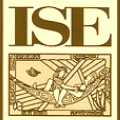Reflections on My Experience at the ISE 2016 Congress, Kampala, Uganda
Written by Daniel Salau Rogei
 The 2016 ISE congress’ theme, ‘Ethno biological knowledge for improved human well being and development’ was particularly relevant for Africa where the congress was held. The community’s indigenous knowledge, is and could be the key to address escalating poverty and deteriorating human well-being in Africa. This was variously demonstrated throughout the congress. The point of convergence for the numerous presenters, both from local as well as scientific backgrounds, is the nexus between indigenous and scientific knowledge in improving communities’ well being and advancing sustainable development.
The 2016 ISE congress’ theme, ‘Ethno biological knowledge for improved human well being and development’ was particularly relevant for Africa where the congress was held. The community’s indigenous knowledge, is and could be the key to address escalating poverty and deteriorating human well-being in Africa. This was variously demonstrated throughout the congress. The point of convergence for the numerous presenters, both from local as well as scientific backgrounds, is the nexus between indigenous and scientific knowledge in improving communities’ well being and advancing sustainable development.
The unique characteristic of ISE’s strategy is its ability to harmonize these two diverse approaches to address critical issues by creating a dialogue space that allows communities to demonstrate their knowledge and experiences. This in turn is corroborated by several scientific researches undertaken by scholars as evidenced in various presentations made.
I participated in as many sessions as I possibly can that are of direct interest to me, my community and generally Indigenous Peoples. These were very enlightening and eye opening to me as most of the topical issues generated debate, that I carried on to my networks for continued deliberations. Emerging issues such as impact of climate change, contested issue of Indigenuity in Africa, food security among others are debates in progress into the foreseeable future.
My personal intervention was to be on a video/documentary regarding Indigenous Peoples’ spirituality in conservation of natural resources and cultures. However, this couldn’t play out due to technological challenge and the device couldn’t open up. Nevertheless, I did take advantage of an absent Kenyan participant to do a presentation on ‘the Impact of climate change on IPs livelihoods and cultures: the case of the Maasai” This was my Msc research area and it was wonderful sharing its findings with the participants. Moreover, the Darrel Possey fellowship grant that I received earlier went to support my Msc program as well as preservation of Maasai culture and language.
In my assessment the ISE 2016 was a success. The Ugandan communities were warm, welcoming and generous in sharing their knowledge.
On the way forward, I would recommend that governments need to participate more in these deliberations. The outcome of such congresses, which is quite rich, balanced and informed, need to find its way to the decision making platforms where it can influence policy formulation. Both regional and national processes and bodies need to benefit from these information. A synthesized report or congress outcome for example need to be shared at the African union or UN. International processes such the UN convention on climate change, Convention on Biological Biodiversity as well as UN permanent Forum on indigenous Peoples Issues among others would benefit a great deal from such body of knowledge.
How if ISE organize a side event in the next UN permanent Forum on Indigenous Issues? This will not be an opportunity to share information, but build networks and coalitions. Am willing to assist in whatever way that would advance the cause of ISE.
My appreciation and gratitude for the support to attend this important forum.
